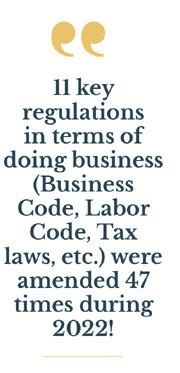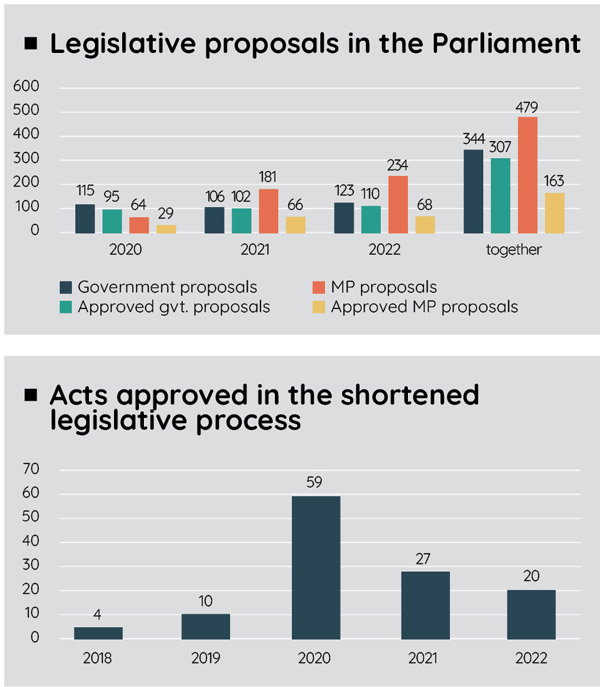And it is pretty much about the same agenda. European competitiveness is not good, small companies have limited access to capital, the regulatory burden is too high, red tape is enormous, etc. One would say that 20 years is enough to expect some move forwards. And it can’t be denied that some progress has been made. However, it is mostly limited to processes.
For instance, Member states have formally introduced the SME Test that assesses economic impacts of legislative proposals on SMEs. It is a fabulous instrument that should protect SMEs from regulations imposing new costs or obligations. But, in a 2016 survey, 48% of EU countries reported that they executed five or less SME tests annually. Was it enough? Only one of the surveyed business organizations was completely satisfied with the assessment of impacts on SMEs. Is it a satisfactory result?
We still suffer from the fact that EU countries respect EU policies to various extents. We still have politicians who do not want to listen to numbers but rather to emotions. Plus, we have an EU administration that generates a lot of ideas of various quality that must be further implemented – somehow - by the member states (e.g., in the future governments should provide subsidies for buying bicycles to push the EU green policy).
 But let´s get back to the regulatory issues and let´s take a look at the Slovak reality in terms of struggling with the red tape and regulatory burden. Slovakia has three major problems.
But let´s get back to the regulatory issues and let´s take a look at the Slovak reality in terms of struggling with the red tape and regulatory burden. Slovakia has three major problems.
- All the work including all analyses/SME Tests executed and all calculated impacts may be destroyed in the Parliament by means of amending proposals submitted in the second reading that can change the regulation in any way imaginable without analyzing the impact of these changes. Until the end of April 2023, the situation was similar for regulations prepared by the members of the Parliament, who were not obliged to accompany the regulation with an impact analysis. Since May the situation has been adjusted and regulations proposed by members of the Parliament also need to include some sort of impact assessment. But we need to wait to see how it translates into reality in the newly formed Parliament in the fall 2023.
- We lack the data essential for a precise impact evaluation. As a consequence, only a limited subset of regulations prepared and submitted to the government and subsequently to the Parliament includes proper impact analyses or, for that matter, any at all.
- The Ministry of Economy that is coordinating the process of regulatory impact assessment does not have the mandate to stop the process in case a legislative proposal is expected to worsen the business environment.
The result of this situation may be documented by the following figures:
11 key regulations in terms of doing business (Business Code, Labor Code, Tax laws, etc.) were amended 47 times during 2022! In 2021, there were 40 amendments, also a very considerable number.
In 2022 there were 147 regulations with impact on the business environment produced by the ministries and submitted for assessment by the Permanent Working Commission for the Assessment of Selected Impacts of the Legislative Council of the Government. In 2021, there were 128 such regulative acts, which is still a high number. Impact assessment was conducted only in 54 cases (37%), so in most cases neither the government nor the Parliament knew what was being approved in terms of new/additional costs for businesses. In addition, an enormous number of regulations was proposed by individual members of the Parliament (in 2022 the number was 234, a huge increase from 64 in 2020) without any impact analysis.
Although clear methodology and procedures how to create and submit new or amended legislation exist, some ministries still feel the need to avoid the appropriate process and to bypass the proper commenting procedure. While in 2018 only four acts were submitted to the Parliament in the shortened legislative process, in 2022 there were as many as 20 acts.
Let´s believe, that after another 20 years, we will be smarter and stop the self-destruction of the business environment in Europe. The other option is to read similar texts from Brussels underlining the fact that, once again, we did not do our homework.

Marián Letovanec, Director of National & International Programs Section, Slovak Business Agency



Follow us